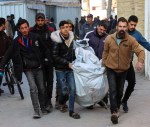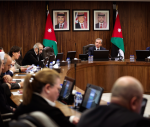You are here
Winning the war on child sexual abuse
Sep 10,2017 - Last updated at Sep 10,2017
With every new crisis that the world faces, humanity’s differences appear increasingly intractable.
Religion, ethnicity, history, politics and economics have all become tools to denigrate and demean. People seem to be drifting apart, and no country is immune from divisive discourse.
But there is one fundamental issue where contrasts dissolve into consensus: the desire to keep children safe.
Protecting the physical, emotional and psychological well-being of children is a universal instinct that no faith, dogma or ideology can defeat. And yet, despite this shared instinct, children everywhere continue to be preyed upon.
Too often, societies ignore child sexual abuse, owing to family pride or fear of stigma. The world can stay silent no longer. The numbers are truly alarming.
According to a 2016 World Health Organisation report, one of every four adults was sexually abused as a child.
A 2007 Indian government study found that 53 per cent of children in India faced some form of sexual abuse growing up.
And human trafficking, especially trafficking of children, is a booming business, with annual average profits totalling $150 billion.
In other words, child sexual abuse is a moral epidemic afflicting the entire world — one that we can defeat only when we openly declare against it.
Young victims and their families should not have to live in silence while predators roam fearless and free. That is why, in December 2016, I joined a diverse group of Nobel laureates and global leaders to launch the “100 Million for 100 Million” campaign.
One of the campaign’s objectives is to persuade, provoke and inspire 100 million young people around the world to raise their voices against violence inflicted on children. The response so far has been overwhelming; tens of thousands have taken the pledge to defend the defenceless.
But I believe we must do even more to awaken the world’s slumbering consciousness on this evil. So today I will embark on a bharat yatra (political pilgrimage), travelling across India to declare war on sexual abuse and exploitation of children everywhere.
Together with dedicated campaigners and child-rights advocates, I will travel from Kanyakumari, on India’s southern tip, to India’s capital, Delhi.
More than 10 million people are expected to join me physically and virtually on a march that will traverse 11,000 kilometres, touching all corners of India in a bid to raise global awareness.
Cynics might say that marches cannot change engrained social taboos.
I disagree. I have seen first-hand how change is possible when ordinary people speak out.
In 1998, I accompanied a group of young people from around the world to the headquarters of the International Labour Organisation (ILO) in Geneva. One by one, these brave children told the assembled leaders of their chained lives as forced labourers. They demanded the freedom to chase their own dreams. And they called for an international law against child labour.
It was the culmination of the Global March Against Child Labour, and more than 15 million people had joined us by marching some 80,000 kilometres through 103 countries.
The result of these combined efforts was dramatic and path breaking. Within a year, the ILO passed Convention 182, which banned the worst forms of child labour. Today, 181 countries have ratified the convention and passed domestic laws that ban the practice.
Back in 1998, when we launched the global march — amid similar cynicism and apathy — roughly 250 million children were being forced to work in horrific conditions.
Though much remains to be done, that number has since dropped by about a third, and I am confident we can reach zero within a generation.
We have also had success marching for civil liberties in India. In 2001, our shiksha yatra (march for education) called on government officials to make access to school a fundamental right for all children. Today, that right is enshrined in the Indian Constitution, and primary school enrolment is almost universal.
The world needs a similar effort against child sexual abuse and trafficking. As many as 2 million children are victims of trafficking every year, with many sold into the sex trade.
Young refugees are especially at risk. In 2016, a record number of people — more than 65 million — were forced from their homes by civil war and other unrest.
When children are displaced, they become highly vulnerable to trafficking and sexual abuse, underscoring the need to act decisively.
When we begin marching this month, we will do so as non-violent soldiers in a global war. Our goal is to give voice to ordinary victims who have been silenced by fear and social pressure. We aim to tug at the conscience of people everywhere, to provoke others into action.
Mahatma Gandhi galvanised millions of oppressed people through his marches. So did Martin Luther King Jr.
Let us be inspired by them, and wage a humanitarian war against child sexual abuse. India is ready to march again on a journey of hope and audacity. We invite the world to join us.
The writer, a Nobel Peace Prize laureate, is honorary president of the Global March Against Child Labour and the founder of Bachpan Bachao Andolan (Save Childhood Movement). ©Project Syndicate, 2017. www.project-syndicate.org












